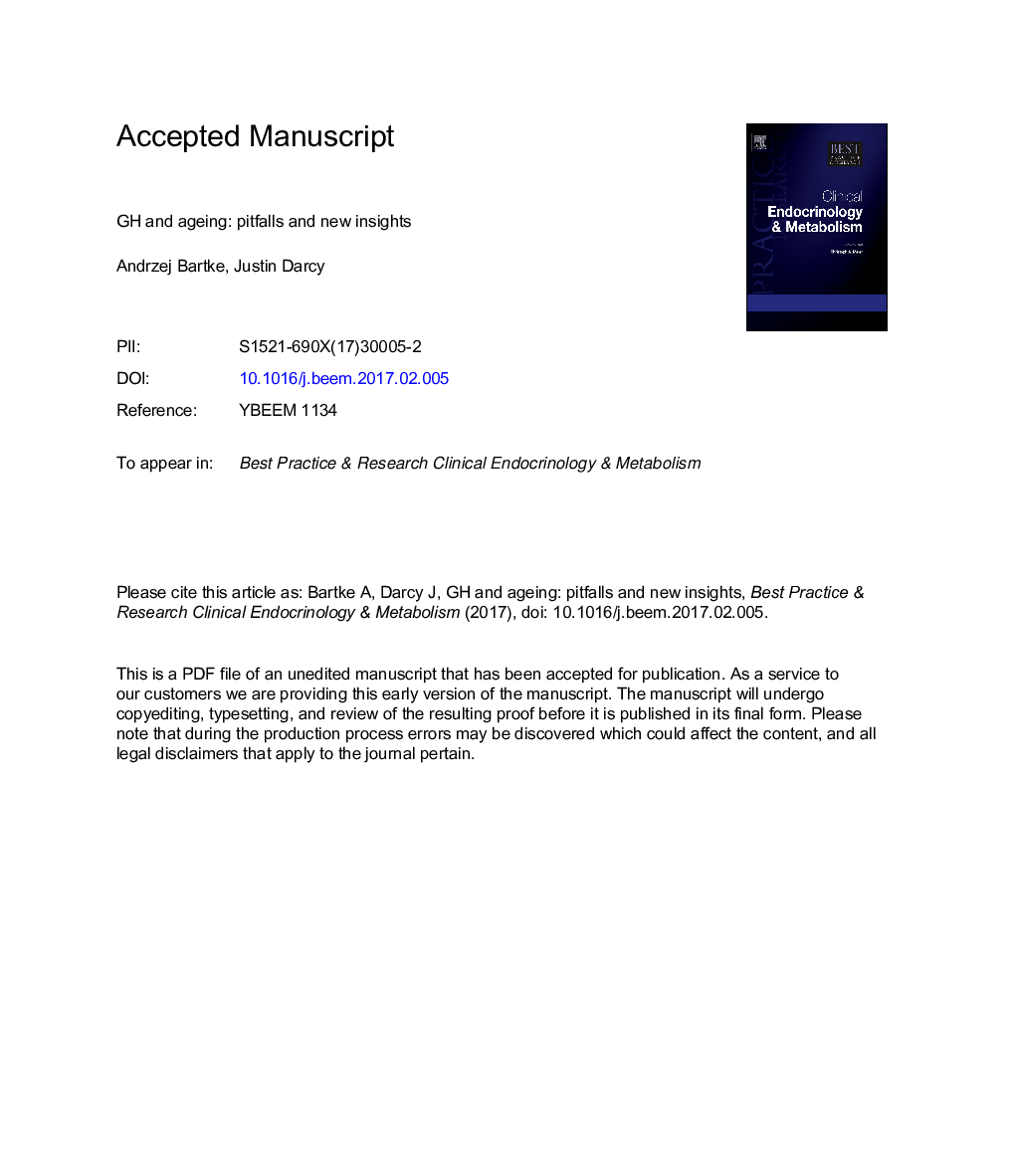| Article ID | Journal | Published Year | Pages | File Type |
|---|---|---|---|---|
| 5586659 | Best Practice & Research Clinical Endocrinology & Metabolism | 2017 | 32 Pages |
Abstract
In laboratory mice, genetic GH deficiency or resistance leads to a remarkable extension of longevity accompanied by signs of delayed and/or slower aging. Mechanisms believed to contribute to extended longevity of GH-related mutants include improved anti-oxidant defenses, enhanced insulin sensitivity and reduced insulin levels, reduced inflammation and cell senescence, major shifts in mitochondrial function and energy metabolism, and greater stress resistance. Negative association of the somatotropic signaling and GH/insulin-like growth factor 1 (IGF-1)-dependent traits with longevity has also been shown in other mammalian species. In humans, syndromes of GH resistance or deficiency have no consistent effect on longevity, but can provide striking protection from cancer, diabetes and atherosclerosis. More subtle alterations in various steps of GH and IGF-1 signaling are associated with reduced old-age mortality, particularly in women and with improved chances of attaining extremes of lifespan. Epidemiological studies raise a possibility that the relationship of IGF-1 and perhaps also GH levels with human healthy aging and longevity may be biphasic. However, the impact of somatotropic signaling on neoplastic disease is difficult to separate from its impact on aging, and IGF-1 levels exhibit opposite associations with different chronic, age-related diseases.
Related Topics
Life Sciences
Biochemistry, Genetics and Molecular Biology
Endocrinology
Authors
Andrzej (Professor and Chief of the Division of Geriatrics Research), Justin (Graduate Assistant),
